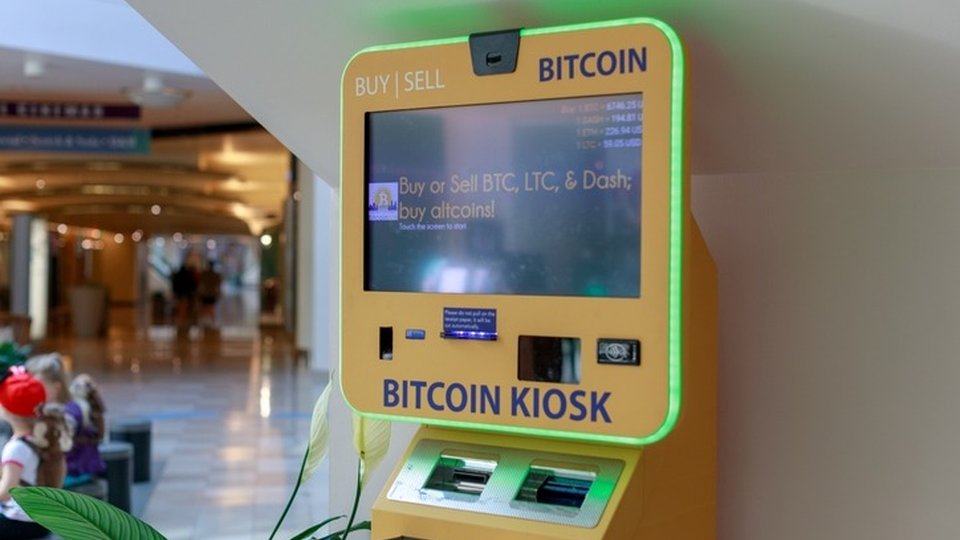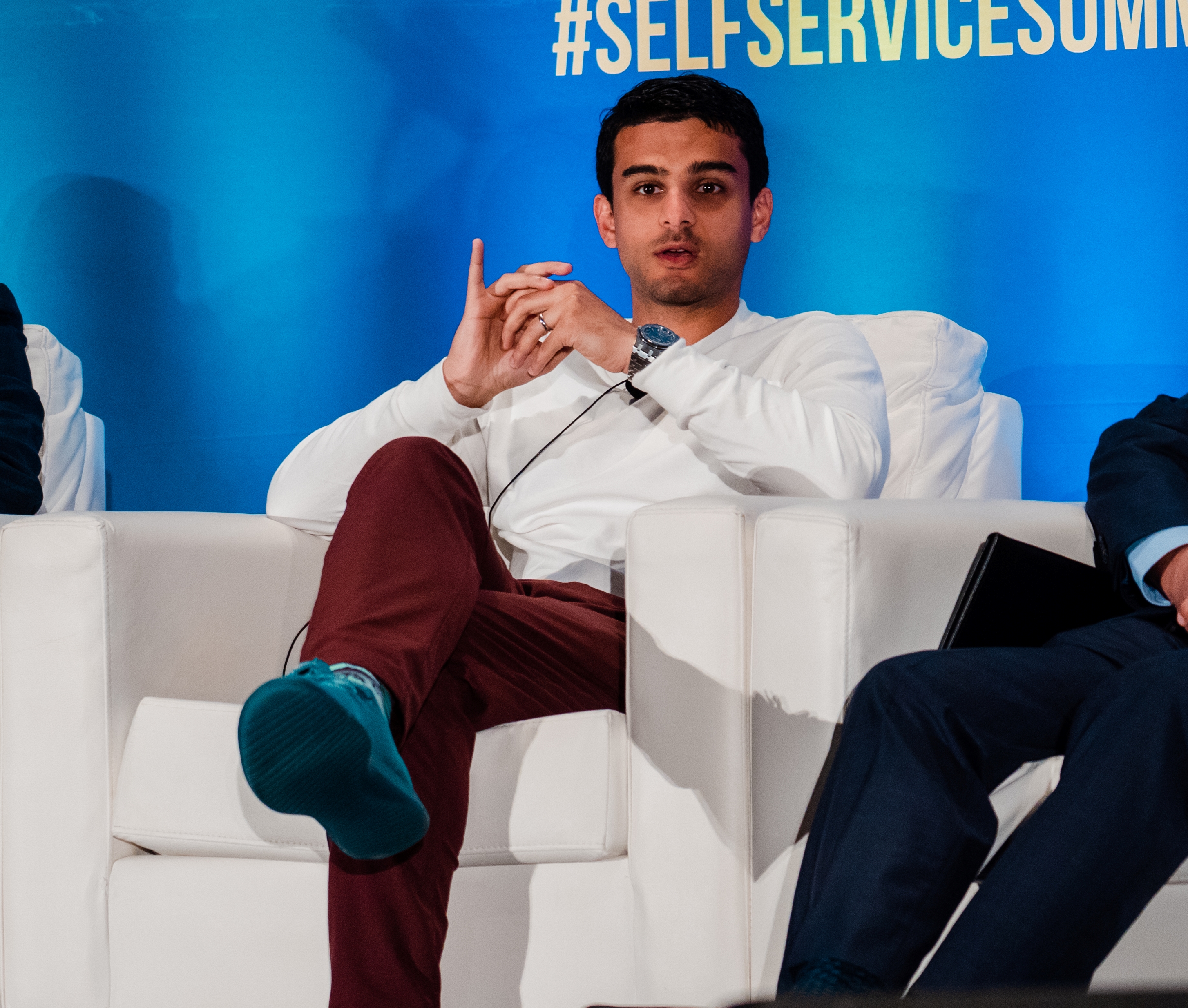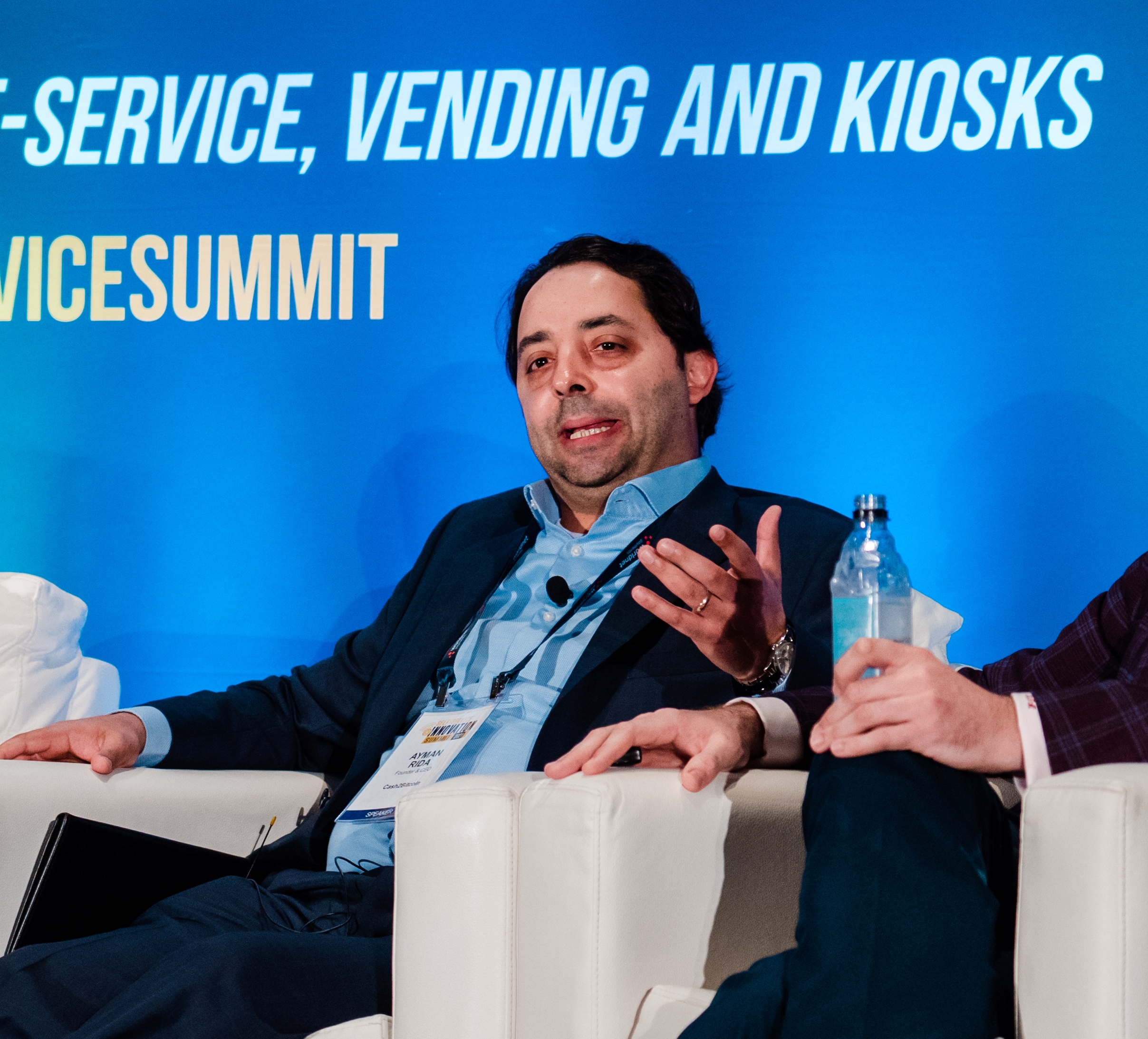Automated Retail & Kiosk Innovation Show
Crypto ATMs on a roll: What you should know
A panel during the Self-Service Innovation Summit explored the opportunities and challenges facing cryptocurrency ATM location managers, operators and manufacturers.

February 9, 2022 by Elliot Maras — Editor, Kiosk Marketplace & Vending Times
As a fairly new form of payment, cryptocurrency has its challenges.
But no one can deny the rapid growth of cryptocurrency ATMs in recent years: from just over 6,000 at the end of 2020 to more than 34,000 on location worldwide, according to coinatmradar.com, which tracks crypto ATMs.
 |
| Ahmed Ahmed, Jimzo Management, Wes Dunn, Genmega Inc., Ali Hassan, Perceptive Capital and Advanced Automated, Ayman Rida, Cash2Bitcoin and Derek Muhney of Coinsource discuss cryptocurrency ATM growth. |
According to cryptocurrency ATM location managers, operators and manufacturers, the growth is still in its early stage, meaning a major opportunity exists for those willing to learn about this emerging industry.
During the recent Self-Service Innovation Summit in Hollywood, Florida, a panel, titled, "Bitcoin and Cryptocurrency for Vending and ATMs," explored the opportunities and challenges facing location managers, operators and manufacturers.
While the pandemic forced many stores to close, panel moderator Derek Muhney, executive vice president of sales, Coinsource, a crypto ATM operator, said he saw his biggest gain in inquiries from store owners during the pandemic.
Panelist Ahmed Ahmed, CEO at Jimzo Management, a fuel station operator that hosts crypto ATMs, immediately confirmed this observation. He said the decline in sales caused by the pandemic is what got him interested in crypto ATMs, also known as BTMs. He saw the machines as a way to increase store traffic.
The fact that crypto ATM providers advertise the locations where their machines are placed is another benefit, he said.
"We're noticing new faces," Ahmed said. "It's not an impulse purchase. Somebody's actually Googling and getting our address. Driving to our location." In addition, he said, they are repeat customers.
At the same time, people who come to the store to buy bitcoin make other purchases as well.
"This is a concept that's bringing cash in hand customers back into your store," Muhney agreed, noting that pay-at-the-pump had undermined in-store traffic.
A customer convenience
One reason the panelists were upbeat about crypto ATMs is they make it easy for consumers to buy crypto versus buying it on an online crypto exchange.
 |
| Moderator Derek Muhney cites crypto ATM growth during the pandemic. |
Panelist Ayman Rida, founder and CEO, Cash2Bitcoin, another crypto ATM operator, said the benefit is the convenience, similar to a regular ATM. Buying bitcoin online can take hours if not days, he said.
Who's buying?
Panelist Ali Hassan, founding partner of both a hedge fund (Perceptive Capital) and a crypto ATM operator (Advanced Automated), said there are two types of crypto ATM customers.
One group consists of older customers who don't usually have the knowledge to access a bitcoin exchange, download an app, connect to their bank account, take a selfie with their ID, create a video and submit it in order to trade on the app.
"The hurdles were really high for a lot of people," he said.
The second group of customers are unbanked and underbanked people. Such people do not have the tools needed to buy from an exchange online.
"They have no access to financial infrastructure," Hassan said. "The only financial infrastructure that they use is predatory. These (crypto ATM) machines are a service to them."
"They're using it (the crypto ATM) as a store of value as well; it is their bank account," Muhney said regarding the unbanked.
Multiple factors fuel demand
The price of bitcoin, which until recently was steadily rising, also played a role in drawing attention to cryptocurrency.
"When the price of bitcoin went up, the demand for (crypto ATM) locations also went up," Rida said.
Another factor was the government stimulus during the pandemic: one of his best months was during the stimulus. This was also true for his regular ATMs' business.
Acceptance of crypto as a form of payment also increased during the pandemic, Rida said.
"It's more popular today than what it used to be three years ago," he said.
Panelist Wes Dunn, executive vice president of sales and marketing at Genmega Inc., an ATM manufacturer, agreed bitcoin's rising popularity played a role in crypto ATM growth. He agreed with Rida that the stimulus checks that began in June 2020 provided people money and people used crypto ATMs.
 |
| Ali Hassan notes the importance of the unbanked and underbanked. |
"You saw large c-store chains suddenly taking on crypto machines," Dunn said, including Circle K. "Demand went through the roof at the same time the entire supply chain collapsed."
While the price of bitcoin, the largest cryptocurrency, recently tanked, Hassan said it is important to take a long term view.
Bitcoin's price booms and busts every four years, he said, "but directionally (is) up."
Challenges ahead
Meanwhile, challenges remain.
Dunn said the congested supply chain has slowed equipment deliveries. In addition, chip shortages caused big increases in computer chip prices. These are big but manageable challenges.
While his cryptocurrency business grew a lot during the pandemic, getting equipment was a hurdle, Rida agreed.
How to choose an ATM provider
Muhney asked the operator panelists what they looked for in a crypto ATM provider. Coinsource, in addition to operating crypto ATMs, provides a franchise solution to other operators through its platform-as-a-service program.
The panelists agreed that a good crypto ATM provider can address the regulatory compliance issues associated with crypto ATMs on their behalf.
 |
| Ayman Rida notes the importance of regulatory compliance. |
"I cannot have a legal liability jeopardize everything else that we do for a small portion of our portfolio," said Hassan, who is a Coinsource PaaS franchise client. "The most intriguing part was the compliance program of the partner we dealt with."
"We wanted someone who wasn't just doing the bare minimum, someone who was going to foresee potentially the issues in the future and build a regulatory compliance program to address those issues," said Hassan who met with six different providers before deciding on Coinsource. "If that means we're leaving a little bit of money on the table, so be it."
"I sell the same bitcoin as anybody else…my differentiating factor here… was the protections that they (Coinsource) give me when I'm selling that bitcoin," Hassan said.
Rida said some new crypto ATM providers offer locations high payments but have weak regulatory compliance programs.
"There's a relation between high rent and compliance," Rida said.
In addition, banks that do business with crypto ATM operators are concerned about regulatory compliance.
"No bank wants an examiner coming in and asking where all this money is coming from and they (the bank) don't know anything," Rida said. "They (the banks) just want to make sure we are doing the compliance properly,"
Crypto and traditional ATMs
Because most crypto ATMs require the customer to pay for bitcoin with cash, the traditional ATM and the crypto ATM help each other in a store, Muhney said.
"They (the crypto ATM customer) have got to use a traditional ATM first to withdraw their funds and then put into the bitcoin ATM," he said. "The store owner in a sense (is) double dipping if you will from the transaction fees from the traditional ATM and then getting his money from the bitcoin ATM."
Rida, who operated ATMs for 15 years prior to expanding into cyrpto ATMs, said he chose Genmega crypto ATMs for reliability and customer support and the fact that the system is Windows based.
 |
| Ahmed Ahmed said he viewed crypto ATMs as a way to improve store traffic, as Wes Dunn listens. |
Marketing crypto ATMs
As crypto ATMs have increased, operators have improved their marketing activities.
Rida said wraps are available to improve the machines' aesthetics.
Social media advertising has also proven effective.
Social media networks were not permitting cryptocurrency advertising in 2017, Muhney said, but have since realized that crypto ATM operators can verify they are a registered money service business.
"They're now allowing us to start advertising on those platforms again, which has been great from a business standpoint to get that word out and start showcasing our locations," Muhney said.
2022 brings optimism
The panelists were upbeat about 2022.
Dunn said transaction volumes are improving along with the legitimacy of cryptocurrency.
Rida said there will be more regulation in 2022, which he said is a good thing.
Asked during the question and answer period why most crypto ATMs sell as opposed to buy cryptocurrency, the panelists agreed the greater demand is for buying crypto. Muhney noted that even though he has some "two-way" machines that both accept and dispense bitcoin, 99% of the volume is from people buying bitcoin.
Another listener asked how long it will take for mainstream retailers to accept cryptocurrency and what will happen to cash. Muhney said cash will never disappear. If there is a power outage, cash is needed.
Regarding retail acceptance, it is increasing, Muhney said. One reason is the transaction fees for accepting cryptocurrency are much lower than credit card surcharges.
Hassan said much will depend on payment processors integrating cryptocurrency.
Asked about accepting cryptocurrencies other than bitcoin, Rida said even though his machines offer Ethereum and Litecoin, 99% of the purchases are bitcoin.
While Coinsource will be offering Ethereum, Litecoin and a "stablecoin" (a cryptocurrency backed by a reserve asset to improve price stability), Muhney said said bitcoin, Ethereum and Litecoin will be the dominant cryptocurrencies.
As the economy recovers from the pandemic and consumers embrace digital commerce, entrepreneurs are clearly betting on cryptocurrency to expand as a form of payment.
About Elliot Maras
Elliot Maras is the editor of Kiosk Marketplace and Vending Times. He brings three decades covering unattended retail and commercial foodservice.
 ChatGPT
ChatGPT Grok
Grok Perplexity
Perplexity Claude
Claude






